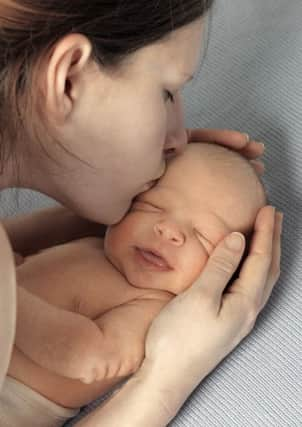Hannah McGill: Mother's Day will never be the same again


Clinton’s characterisation of parenting as a collective responsibility drew easy ire at the time. Accepting the 1996 Republican nomination, Bob Dole chided, “It takes a family to raise a child.” Dole’s putative 2016 successor Donald Trump clearly agrees, being fond enough of families that he likes to start a new one while he’s still got one on the go. But the question of who should be responsible for child welfare is not easily answered by either party affiliation or catchy slogans. Nowhere is this more apparent than in a nation that will – unless last-minute legal challenges succeed – soon enshrine child welfare as a collective responsibility. Which is nice, right? The Named Person policy, due to roll out in Scotland this August, does sound good in abbreviated form. Who wants to oppose a scheme that offers an additional source of support to every child? Its detractors, however – who come from all points on the political spectrum – observe that the fine print of the policy threatens privacy (want your teenager’s teacher, but not you, to be told what she goes to the doctor about?), and lays every parent’s lifestyle bare to state suspicion. No longer will fear of “significant harm” be required for information to be shared and state intervention potentially triggered; subjective concerns about “wellbeing” will be sufficient.
This is my third Mother’s Day as a mother. Looking back on the grisliest bits of the experience, I comprehend both the impetus behind Named Person, and the angst it’s causing. The sheer difficulty of being a parent is still hugely underrated. There’s no question that suffering occurs when the state overlooks the needs – financial, psychological and practical – that parenthood creates. I yearned for official support, and benefited from having the confidence and vocabulary to ask for it. The idea of that support being reframed as suspicious eyeballing, however, plays to the very worst fears of the insecure parent. “I’m not up to this. I’m getting it wrong. If I confide in anyone how scared I am, they might tell on me.” A government aware of and invested in the challenges facing families is a great thing. The detail of this policy, however, isn’t so much “it takes a village” as “Big Village is Watching You.”
Too old to count on daft statistics
Advertisement
Hide AdAdvertisement
Hide AdFORTY is a scary age. Judd Apatow repeatedly makes films about how it is: in The 40-Year-Old Virgin it’s the point at which common-or-garden sexless geekdom becomes unacceptably weird sexless geekdom; in This Is 40, it’s the age at which fun is over and marital happiness has faded. Perhaps it’s having grown up in the Age of Kylie – when people who were young, vital and attractive in one’s teens still seem young, vital and attractive – or knowing that my generation is going to work into our seventies and hang about in a state of decrepitude for decades thereafter, but 40, which is the next age I get to be, has never scared me overmuch.
And look! A new survey released last week says I will hit maximum relationship happiness as I enter that fourth decade. My best-ever salary, meanwhile, kicks in two years later. This second bit seems wildly far-fetched – but they surveyed people! It must be true! That said, the Office for National Statistics reported a few weeks ago that the UK’s unhappiest people are aged between 40 and 59. Which in turn flies in the face of research done by Warwick University a few years ago that found that mental wellbeing increased in middle age. Perhaps age brings with it the wisdom to stop reading reports on surveys about happiness.
Corrie’s continuity man
AS FUDDLING as the fact that some soap opera characters have been playing their roles for nearly as long as they have been alive (HOW DOES BILL ROACHE KNOW WHO HE IS ANYMORE?) is the challenge to soaps of maintaining internal logic through their countless changes in writing and production staff. Last week Coronation Street fans complained that a character’s pregnancy appeared to have been forgotten. Previous mistakes included characters forgetting their own marriages, bereavements and siblings. But unlikely ever to be forgotten by anyone is the show’s late creator, Tony Warren, the continuity of whose influence is certainly unbroken.